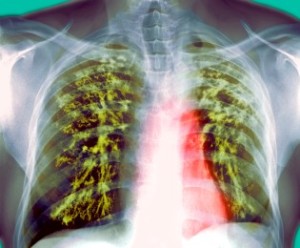- Home
- Editorial
- News
- Practice Guidelines
- Anesthesiology Guidelines
- Cancer Guidelines
- Cardiac Sciences Guidelines
- Critical Care Guidelines
- Dentistry Guidelines
- Dermatology Guidelines
- Diabetes and Endo Guidelines
- Diagnostics Guidelines
- ENT Guidelines
- Featured Practice Guidelines
- Gastroenterology Guidelines
- Geriatrics Guidelines
- Medicine Guidelines
- Nephrology Guidelines
- Neurosciences Guidelines
- Obs and Gynae Guidelines
- Ophthalmology Guidelines
- Orthopaedics Guidelines
- Paediatrics Guidelines
- Psychiatry Guidelines
- Pulmonology Guidelines
- Radiology Guidelines
- Surgery Guidelines
- Urology Guidelines
Genetic variation may increase tuberculosis susceptibility

Washington D.C. [USA] : Chinese researchers have found that a single change in a gene may increase the risk of tuberculosis.
According to the study, a single nucleotide change in a gene that affects production of hepcidin-- a peptide involved in inflammation, immunity, and control of iron levels--is associated with greater susceptibility to extrapulmonary tuberculosis - situated or occurring outside the lungs.
Individuals with this single nucleotide polymorphism (SNP) make significantly less hepcidin in response to infection by Mycobacterium tuberculosis.
The team concluded that the SNP in the hepcidin promoter gene may play a critical role in susceptibility to tuberculosis affecting organs other than the lungs, but not pulmonary tuberculosis.
They proposed that decreased hepcidin production in response to infection and inflammation reduces the ability of macrophages to destroy M. tuberculosis, which then enter the circulation and spread the infection from the lungs to other areas of the body.
"This is a potentially important finding in the realm of human susceptibility to infectious disease, which is a greatly under-studied area of research and one that GTMB has chosen to highlight," said a researcher Garth D. Ehrlich
The research appears in Genetic Testing and Molecular Biomarkers journal.

Disclaimer: This site is primarily intended for healthcare professionals. Any content/information on this website does not replace the advice of medical and/or health professionals and should not be construed as medical/diagnostic advice/endorsement or prescription. Use of this site is subject to our terms of use, privacy policy, advertisement policy. © 2020 Minerva Medical Treatment Pvt Ltd